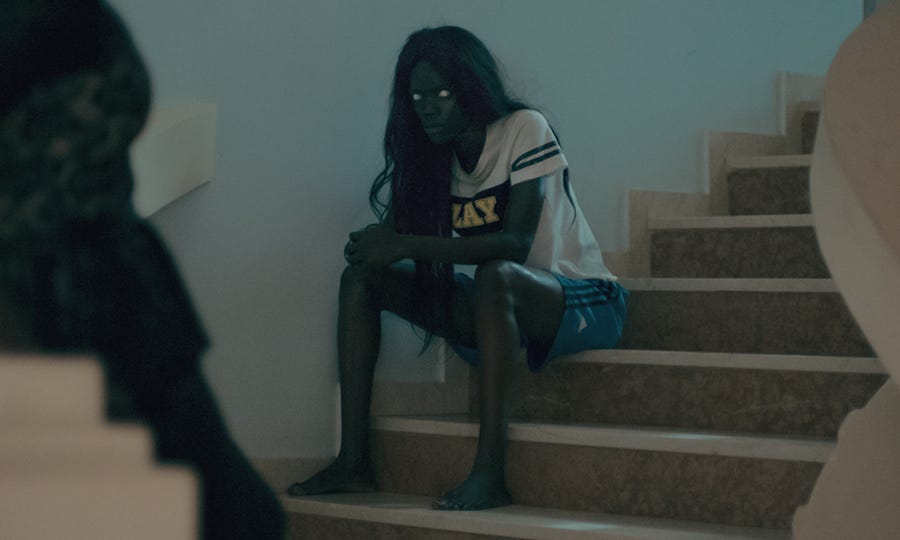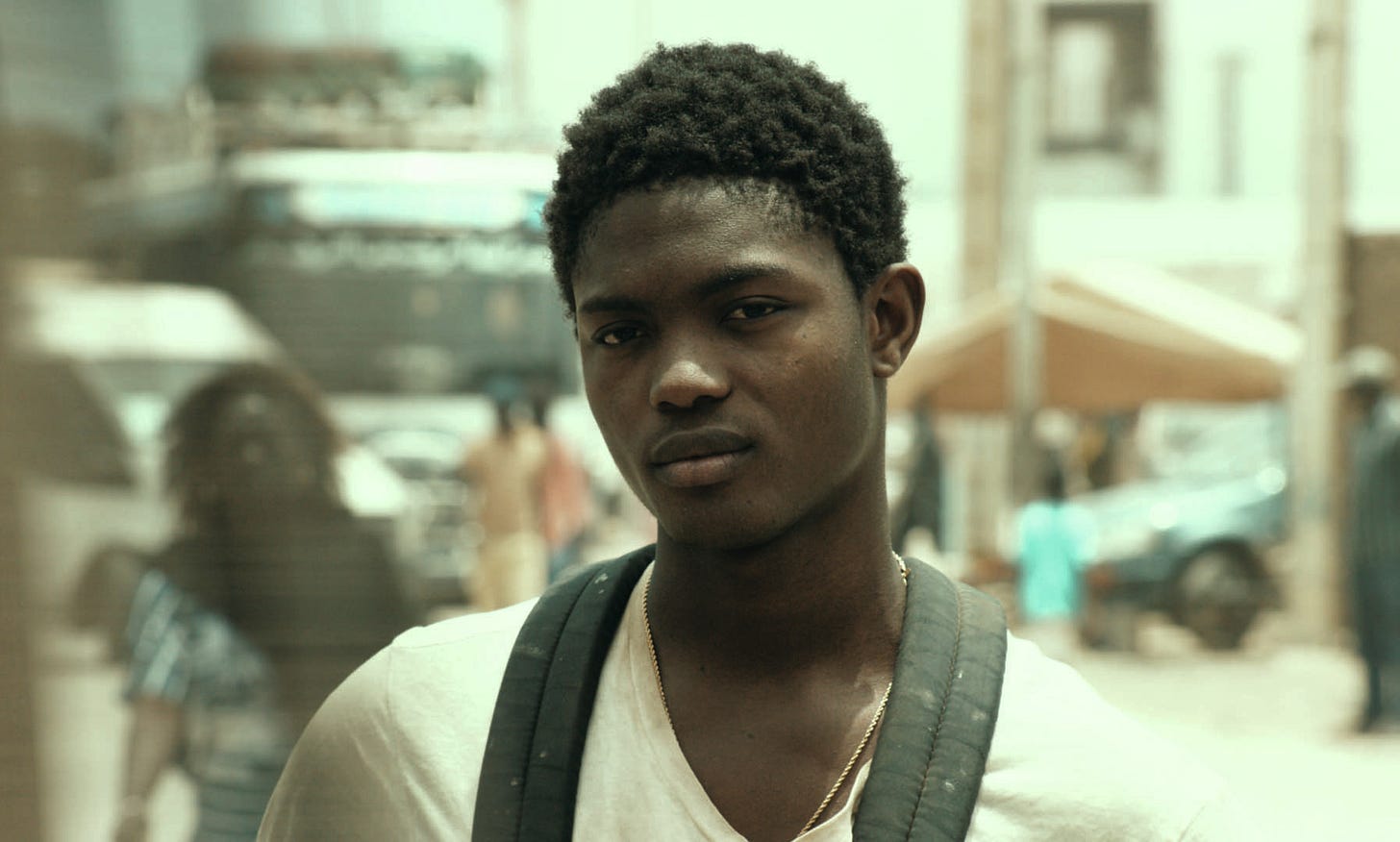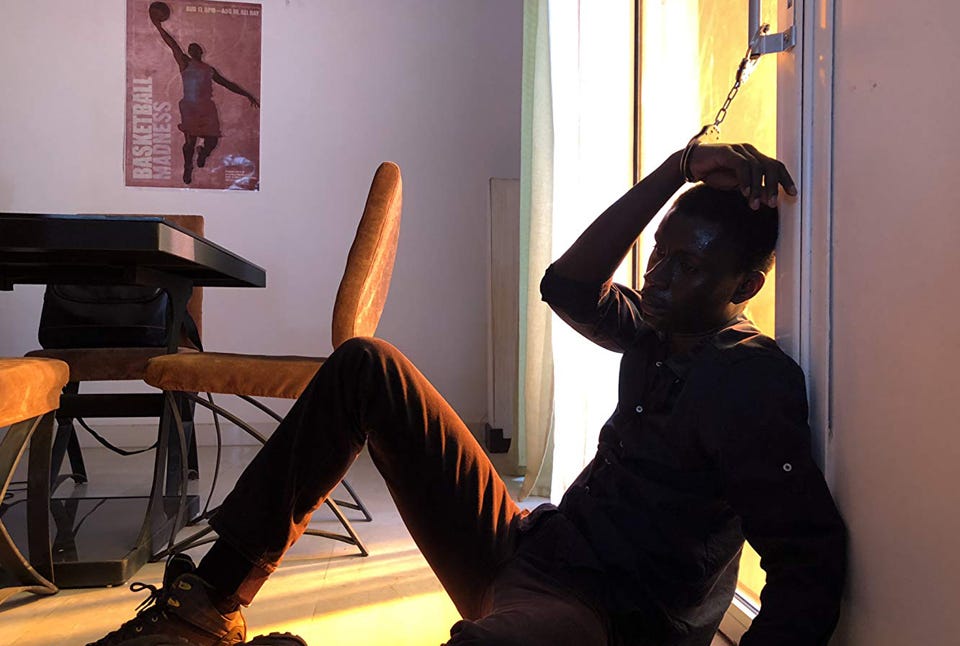Atlantics
And Prison Slave Labor
When an actor turns to directing, you can usually take a good look at which directors they’ve worked with to see what kind of filmmaker they would be. Given the caliber of director with whom he collaborates, you wouldn’t get your hopes up for a movie helmed by, say, Bruce Willis. But international actress Mati Diop, who has only a handful of credits to her name, has worked with Claire Denis and had a prominent role in Antonio Campos’ underseen “Simon Killer”, and therefore was a particularly notable name to join the ranks of director with “Atlantics”.
Set in Dakar, “Atlantics” follows a town that has been taking advantage of the day laborers that make up the bulk of the locals. At the start of the narrative, they’re fighting for past dues from the local businessmen who seem eternally unworried by this workers’ revolt. The assumption is that these men will be forced to take this work, forced to suffer while they support families. Instead, they depart to the seas, supposedly to Spain. But their trip is without warning, leaving the town with questions as to where the workforce has gone.
The film largely spends time with the quizzical women of Dakar, confused as to why they have been abandoned by their men. The focus stays largely on Ada, however, who saw her lover depart even as she prepares to marry a local businessman. It is merely assumed by friends that she is perfectly fine with her place in the country’s social strata. And then her new husband gets haunted.
It slowly dawns on the community that the men didn’t flee to find work. They are ghosts now, and third world capitalism has wiped out both them and their concerns. And the ghost of Ada’s lover won’t disappear without reminding Dakar that He Was Here. He begins to torment Ada’s husband-to-be, leading a phalanx of ghosts back into Dakar to remind the country of what was lost. It is a ghost story, and the residents of Dakar have seen enough that they know how to react. Nicolas Cage would agree: you have to Pay The Ghost.
The capitalists of Dakar, who are the ones responsible for the massive tower that casts a shadow over everyone, find themselves on the backfoot. The ghosts are moving through the city, taking over the bodies of others, and therefore no one can be trusted to be who they claim to be. But in Diop’s world, the left-behind lovers are also dangerous. There’s no need to show violence and hostility to emphasize this. Diop captures this fiery defiance in every woman’s face, a strategy that builds to a powerful late-film encounter that can be interpreted in a number of ways. Diop has made a movie of broad, powerful strokes, in the muted style of Denis. It reminds the audience that, as men with money tear society asunder for the sake of profit, they will not escape unharmed from the damage wrought. Vengeance for economic exploitation may not arrive tomorrow, but it is in transit.
I’m reminded of the UNICOR systems in prison, which shifted in and out of function while I was down. UNICOR is a labor system used in federal prisons to employ inmates in jobs that require heavier training and activities. In my first federal institution, you had to jump through several hoops in order to obtain a UNICOR job, which would pay significantly more than other prison jobs while also giving you skills that could prove useful in the real world.
UNICOR would often play a role in developing equipment and technologies for major fast food corporations or even airline industries, earning the Federal Bureau of Prisons nine figure annual paydays. The problem with this is that, as accumulated, prison workers in UNICOR were making well below minimum wage in several scenarios in order to craft, say, solar panels for McDonald’s. The words you’re thinking of are “slave labor.” Supposedly UNICOR is not meant to actually produce products to be used by companies not affiliated with the FBOP, but that’s just one of those little white lies the federal system had been telling for decades.
In 2016, while I was in the SHU for a few months, there were nationwide strikes all over the Bureau of Prisons, one of the points of contention being slave labor in the UNICOR program. Word circulated that material made for major businesses was made by American slave labor, and several of the companies disavowed knowledge of this, which is a cute gesture (although it has been alleged that they simultaneously pressured mainstream media outlets to stay silent about the strikes). While my institution was not on strike, by the time I came out of the SHU, the UNICOR program had been quietly shuttered at that location. And at my second location, the UNICOR building was abandoned. But UNICOR still thrives in other prisons all across America, paying inmates mere cents an hour to make furniture and equipment that major companies pretend are the result of a well-compensated workforce.





